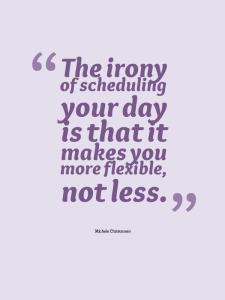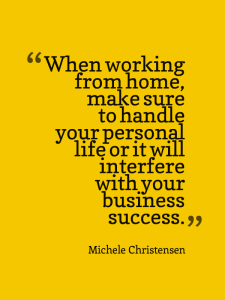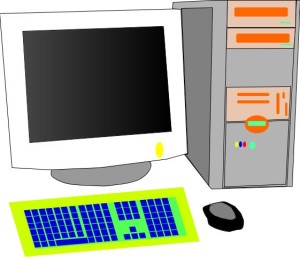 In my last post, I talked about how to keep your personal life from getting in the way of your business success. This post is about how to schedule your day to accommodate both business and personal tasks while being flexible and productive.
In my last post, I talked about how to keep your personal life from getting in the way of your business success. This post is about how to schedule your day to accommodate both business and personal tasks while being flexible and productive.
First, it’s important to commit to a practice of scheduling your day, so let me explain some of the benefits. You’ll be able to get a clear view of what you did and did not get done in a day and adjust your next day accordingly. You’ll be able to look at a bird’s eye view of the 16 or so waking hours you have available and decide how to use them based on your current priorities. If you don’t already have it, you’ll get a sense of when is a good time of day for different activities. You’ll keep activities that tend to expand, like social media marketing, down to an appropriate amount of time. You’ll be able to prioritize the few things that you really need to get done.
I do this as part of my end-of-day routine when things are fresh in my mind. For some reason, having my day laid out before I wake up lets me hit the ground running. If I’m feeling bad about something I didn’t get done, I can put it on my schedule for the next day and let it go for the night. Of course I give in to temptation and skip my scheduling sometimes, and I always pay the price the next day.
You can put your schedule wherever it suits you – paper, spreadsheet, day planner, etc. I like to use a spreadsheet with one line per activity with start and end times. I would not recommend your main calendar – this is far more detailed than would fit on most calendars.
I always start my day with the same things. I’m best in the morning, so those first few hours are set aside for high-priority projects, and that means whatever is most important to be working on will get some uninterrupted high-quality time before anything else can get in the way. Consider putting in some time on high-priority work even before you check email or other messages.
Next, add in the “big rocks,” i.e. those big things you have to work around like appointments, meals, errands, fitness, etc.
Designate some time for personal tasks and for miscellaneous business tasks and handling email, messages, mail, etc.
Schedule in your breaks with a start and end time. Taking breaks is critical to being productive, but you do need to set an end time or it’s too easy to waste a lot of time.
Just like the first few hours of the day are set, so should the last few. Give yourself some time to wrap up your day, schedule the next day, do any before bed tasks, and finally some time to relax so you are in low gear when it’s time to go to bed.
Sounds great, right, except for inevitable last-minute things that pop up? The irony is that having a schedule helps you to be more flexible. You have a plan to deviate from. You know what you are giving up (or have to make up) if you say yes to something new. Being your own boss means that not only do you make your schedule, but you can change it too.
How do you schedule your day? Does it help you to be more flexible? Tell me about it in the comments.







